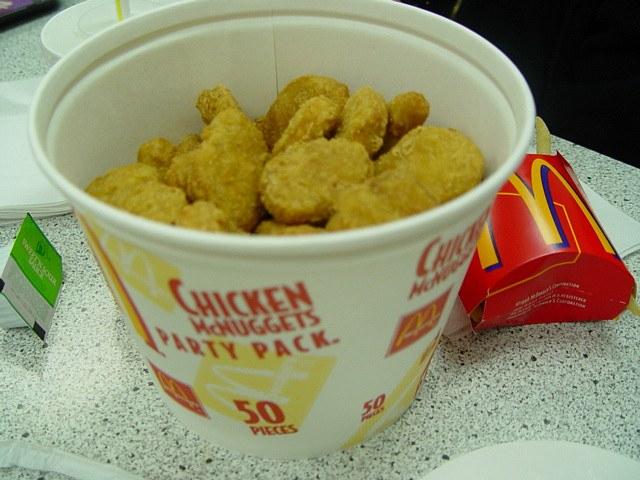
Antimicrobial drugs make modern life possible. People don’t have to die from diseases that were once a death sentence thanks to antimicrobial drugs, which include antibiotics, antifungals and antivirals.
However, the routine use of antibiotics in livestock has contributed to the increase of antimicrobial resistance. But one fast food company, perhaps the best known, wants to do something about it. On Wednesday, McDonald’s announced that it will only source chicken raised without antibiotics for its U.S. restaurants by March 2017.
According to McDonald’s statement, all of the chicken served at its U.S. restaurants comes from U.S. farms that are working with the company to implement the antibiotics policy. The new policy supports McDonald’s Global Vision for Antimicrobial Stewardship in Food Animals, introduced this week. In 2014, McDonald’s got a team of experts assembled to “debate and comment” on the use of antibiotics in livestock. The experts included veterinarians, physicians, epidemiologists and animal health experts.
Part of the Global Vision are four guiding principles:
- Prohibiting the use of antimicrobials in food animals that are defined by the World Health Organization as “critically important” to human medicine and not presently approved for veterinary use.
- Classes of antimicrobials that are approved for use in both human and veterinary medicine can only be used with a veterinary-developed animal health care program.
- Prohibiting the use of any medically important antimicrobials for growth promotion in food animals.
- Using animal production practices that reduce or eliminate the need for antimicrobials.
McDonald’s is clearly trying to adapt to a changing landscape. The fast food chain has been losing money in the U.S.: In January, the company released its fourth quarter results for 2014, which showed that U.S. sales decreased by 1.7 percent and operating income declined by 15 percent.
McDonald's in 2015 is “evolving to a more nimble, customer-led organization with a strategic roadmap focused on menu simplification and local customer tastes and preferences,” according to a statement. In other words, the company has discovered that some American consumers are adopting healthier diets and expect more from a fast food chain.
The new antibiotics policy is not the only recent announcement by McDonald’s concerning its supply chain. The fast food chain will start offering customers milk jugs of low-fat white milk and fat-free chocolate milk from cows that are not treated with the artificial growth hormone, bovine somatotropin (rBST). The milk jugs are options for Happy Meals. While the Food and Drug Administration states that there is no known difference between milk from cows treated with rBST and milk from cows not treated with it, many consumers prefer to drink milk free of hormones.
Give customers what they want. That’s a good rule for businesses to follow. And doing something to help stop antimicrobial resistance while giving customers what they want is even better.
Image credit: deovolenti

Gina-Marie is a freelance writer and journalist armed with a degree in journalism, and a passion for social justice, including the environment and sustainability. She writes for various websites, and has made the 75+ Environmentalists to Follow list by Mashable.com.














